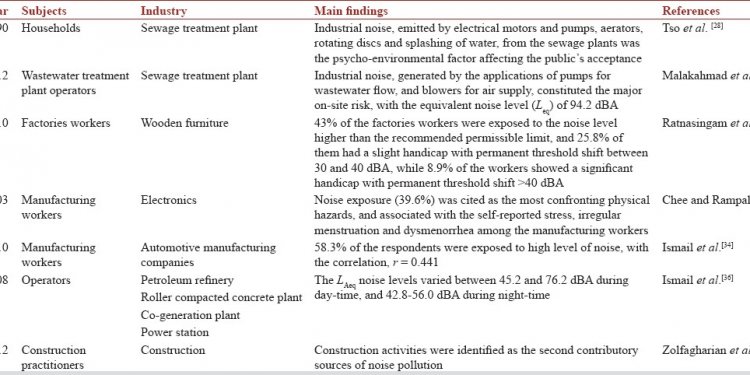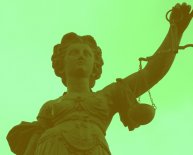Environmental Protection Act 1990 Noise
 The headings below explain the legal steps that can be taken if you have a problem with noise in your neighbourhood.
The headings below explain the legal steps that can be taken if you have a problem with noise in your neighbourhood.
What is noise?Generally, noise can be defined as any unwanted sound. Noise could occur unexpectedly, or be too loud or repetitive. At certain decibels, it can be hazardous to health, with low frequency noise as damaging as loud noise. Noise accounts for most of the complaints that local councils and the Environment Agency receive about environmental pollution, and is a major source of stress.When does noise become a nuisance?English private law defines a nuisance as "an unlawful interference with a person's use or enjoyment of land or of some right over, or in connection, with it." The process of determining what level of noise constitutes a nuisance can be quite subjective. For instance, the level of noise, its length and timing may be taken into consideration in ascertaining whether a nuisance has actually occurred.What is a statutory nuisance?Local authorities have a duty to deal with statutory nuisances under the Environmental Protection Act 1990. For noise to amount to a statutory nuisance, it must be "prejudicial to health or a nuisance" - see section 79(1)(g) and (ga) of the 1990 Act. Guidance issued in Scotland to accompany the Public Health (Scotland) Act 2008 gives a comprehensive account of the relevant background and case-law.What is an abatement notice?An abatement notice can be served by the local authority if they are satisfied that a noise problem amounts to a statutory nuisance. The notice may require that the noise be stopped altogether or limited to certain times of day. The notice can be served on the person responsible for the noise, who then has 21 days to appeal.There is an extremely noisy construction site near my house. The local council says that one of the things it has to consider is whether the contractor has applied all best practical means. What does this mean?"Best practical means" is a defence available to operators of an industrial, trade or business premises when faced with a noise nuisance complaint. Operators responsible for the noise have to prove that they have used all reasonable means to reduce or control the effect of the noise.What can the police do about noise complaints?Noise nuisance is generally treated as an environmental health matter, to be handled by the local council. The police can deal with a complaint if the noise amounts to a breach of the peace, or where it is associated with threatening, violent or other anti-social behaviour. In very serious cases of anti-social behaviour, the police and local councils can work together to seek anti-social behaviour orders (ASBOs) against residents causing alarm, harassment and distress to others. In Scotland, police also have powers under the Civic Government (Scotland) Act 1982 in relation to music-making and loudspeakers in public, and can confiscate the offending musical instruments or sound-making equipment.What is anti-social behaviour?The closest to a definition for England and Wales is provided by the Crime and Disorder Act 1998 which introduced anti-social behaviour orders (ASBOs). It states that a person who acts in a manner that causes or is likely to cause harassment, alarm or distress to one or more persons who do not belong the person's own household is behaving anti-socially. In Scotland, the Antisocial Behaviour (Scotland) Act 2004 says "a person ('A') engages in antisocial behaviour if A (a) acts in a manner that causes or is likely to cause alarm or distress; or (b) pursues a course of conduct that causes or is likely to cause alarm or distress, to at least one person who is not of the same household as A". The recent law on anti-social behaviour now includes provisions that deal with noise nuisance. You can find out from your local council if the noise disturbance you are complaining about amounts to anti-social behaviourHow do I make a noise complaint to my local authority?Complaints can be made in person, by telephone or by email to the environmental health department of your local authority. Your name and address would normally be kept in strict confidence and would not be released to the person causing the noise. However, if the council decides to take legal action, you should be prepared to give a statement and attend court to give evidence.What are the laws that deal with noise pollution?The UK does not have a consolidated body of legislation on noise pollution. You'll find some selected pieces of legislation that deal with noise pollution on the Law Search page.Can I get public funding if I decide to take legal action?Publically funded legal representation is not normally available for this type of action. However, under the Legal Help Scheme you may be entitled to free or subsidised legal advice and help to prepare your case. Your local Citizens Advice Bureau (CAB) may be able to give you advice on your eligibility. Details of the closest CAB to you can be obtained from the CAB Directory Search.There is also advice on the following websites Legal Services Commission - Government body responsible for legal aid scheme in England and WalesCommunity Legal Advice- Government website offering free, confidential and independent legal advice for residents of England and Wales. Call Community Legal Advice Helpline-0845 345 4 345 (Lines open Mondays- Fridays-9.00 am to 6 pm- 4p/ per min)What alternatives are there to publically funded legal representation?Your solicitor might be prepared to enter into a no win-no fee agreement. The solicitor would not take any fees from you if the action fails but would be entitled to a fee plus a percentage increase if the case succeeds. Note that if you lose the case, you may have to pay the other party's legal costs and other expenses. You need to be very clear from the outset that there may be costs involved and you may have to arrange to take out insurance to cover this. Your solicitor will be able to advise you.
Source: www.environmentlaw.org.uk
Share this article
Related Posts

 The headings below explain the legal steps that can be taken if you have a problem with noise in your neighbourhood.
The headings below explain the legal steps that can be taken if you have a problem with noise in your neighbourhood.





















